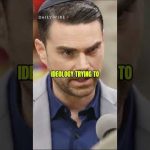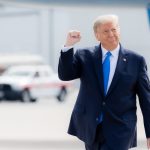In recent discussions about political dynamics in the United Kingdom, former Prime Minister Liz Truss shed light on a troubling trend that threatens the very fabric of democracy and free speech. As British institutions come under the grip of ideologies that seem increasingly disconnected from the populace, the narrative begins to emerge that this struggle is not merely a matter of left versus right but rather of elites against the people. The historical roots of this battle can be traced back through time, recalling how previous generations have fought for the rights that seem increasingly vulnerable today.
As Truss spoke candidly about her time in office, she revealed a startling realization: the deep-seated issues within government are more challenging to confront than anyone could have anticipated. It appears that in the halls of power and within the bureaucracy, there exists a prevailing atmosphere that disregards the will of the average citizen. Many are left wondering how we arrived at a point where those in charge became so disconnected from the lives of the people they represent. Historically, this detachment has led to turmoil, fueling revolutions and systemic changes; it seems history may be on the verge of repeating itself.
The alarming situation in Britain mirrors aspects of other Western democracies, including the United States, where rising concerns over immigration, economic stability, and the erosion of free speech stoke the flames of public discontent. Recent revelations about political operatives working hand in hand with media and government officials demonstrate a troubling partnership that filters information and stifles dissent. In times past, political elites have often manipulated narratives for their gain, but never before has it felt so pervasive and intentional, affecting the core of democratic engagement.
Censorship, both subtle and overt, threatens to undermine the protections citizens once took for granted. Truss noted the contrast in treatment between serious crimes and expressions of dissent, alluding to a judicial system that appears to prioritize conformity over accountability. This troubling imbalance raises an unsettling question: what happens when society values silence over dialogue? Throughout history, societies that allowed the suppression of free speech often found themselves slipping into authoritarianism, and the lessons learned from those dark times must serve as a warning signal for the present day.
Despite the ominous climate, a flicker of hope remains. There is palpable frustration among the public—a frustration that could ignite a renewed demand for accountability and representation. Elections, once viewed as straightforward means of expressing the people’s will, are becoming increasingly complex as people seek alternatives that resonate with their lived experiences. As Truss pointed out, disillusionment with mainstream parties is evident, and this discontent is the crucible from which change may spring. The narrative of “the elites versus the people” is a historical pattern; as this story unfolds, it brings with it the potential for profound transformation.
Ultimately, the ongoing battle for free speech, representation, and accountability is not just about current political players or the parties vying for power. It is deeply rooted in a historical struggle that transcends borders and generations. As individuals reflect on the past and the sacrifices made for the rights they now hold, the question remains: will they be willing to stand up and reclaim these rights as the tides of change ripple through society once more? History teaches us that the road ahead is laden with challenges, but it is through these challenges that societies can rediscover their voice and unite for a better future.




